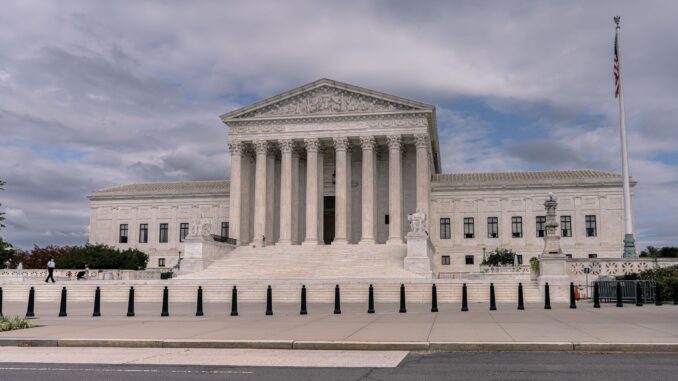
By Andrew Terry
Page Editor
On Friday the Supreme Court issued a decision that effectively overturned Roe v. Wade, eliminating constitutional rights for abortion and giving states the power to allow, restrict or ban abortions.
Abortions are now illegal in South Dakota, Louisiana and Kentucky. They will soon be illegal in Texas and Oklahoma.
Previously, Texas had instituted an abortion ban after 6 weeks except in cases where the pregnant person’s life would be saved. Now, due to a law already in place, abortion will be banned in Texas still except for when the pregnant person’s life is at risk.
Texas Governor Greg Abbott supports the Supreme Court judgment, saying in a press release “The U.S. Supreme Court correctly overturned Roe v. Wade and reinstated the right of states to protect innocent, unborn children. Texas is a pro-life state, and we have taken significant action to protect the sanctity of life.”
The exact date that abortions will become illegal in Texas is not entirely clear. The law states that abortions will become illegal 30 days after the supreme court issues a formal judgment that would overturn Roe v. Wade which according to Texas attorney general Ken Paxton could take up to a month.
In total there are 16 states where abortion is now illegal or will soon be.
The court voted 6-3 in Dobbs v. Jackson Women’s Health Organization, A case concerning the constitutionality of Missippi’s 15-week abortion ban.
“The Constitution makes no reference to abortion, and no such right is implicitly protected by any constitutional provision, including the one on which the defenders of Roe and Casey now chiefly rely — the Due Process Clause of the Fourteenth Amendment,” Wrote Justice Samuel Alito, in the court majority opinion.
Chief Justice John Roberts concurred with the majority opinion but did not entirely agree, stating that he would have upheld Missippi law relevant to the case which bans abortion after 15 weeks. Writing “That right should therefore extend far enough to ensure a reasonable opportunity to choose, but need not extend any further certainly not all the way to viability.”
Justices Breyer, Sotomayer and Kagan delivered the dissenting opinion, “With sorrow—for this Court, but more, for the many millions of American women who have today lost a fundamental constitutional protection—we dissent.”
The dissenting justices also warn that the court would use the same principles from Dobbs to overrule other decisions that give constitutional protection to purchasing contraceptives and gay marriage. “Either the mass of the majority’s opinion is hypocrisy, or additional constitutional rights are under threat. It is one or the other.”
In an attempt to assuage fears that the court would use its decision in Dobbs to overturn other rulings Alito wrote, “And to ensure that our decision is not misunderstood or mischaracterized, we emphasize that our decision concerns the constitutional right to abortion and no other right. Nothing in this opinion should be understood to cast doubt on precedents that do not concern abortion.”
However, Roberts wrote that the court should reexamine cases with the same principles used in Dobbs. “In future cases, we should reconsider all of this Court’s substantive due process precedents, including Griswold, Lawrence, and Obergefell.”
Following the ruling, experts expect that legal battles in state courts are likely to come.

Leave a Reply